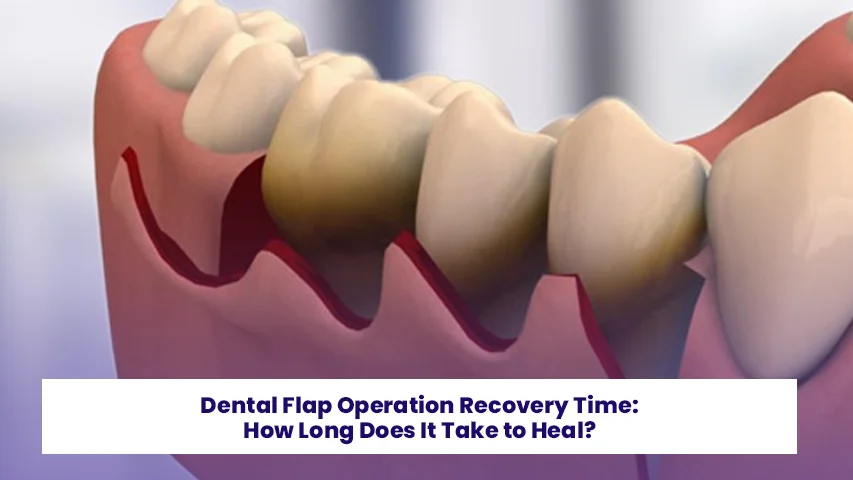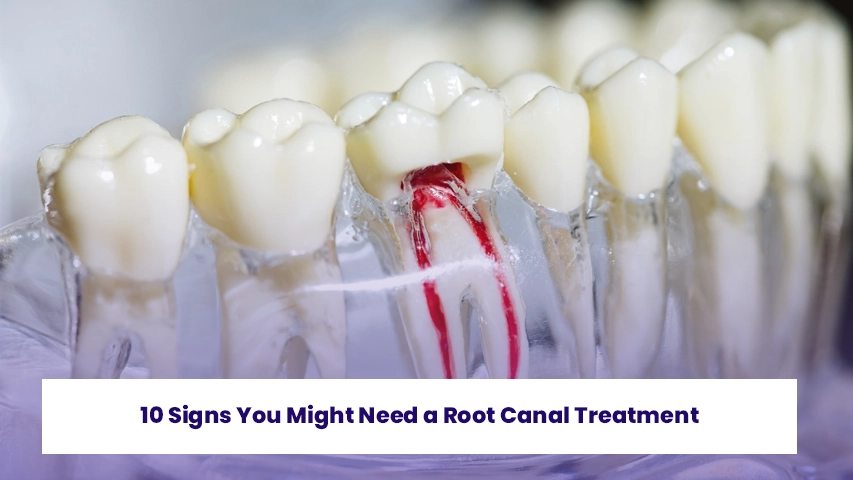
Advantages and Disadvantages of Dental Implant
25 March 2025
Receding Gum: Causes, Symptoms and Treatment Methods
19 April 2025Bruxism (Teeth Grinding): Symptoms, Causes & Treatment
Primarily people grind teeth while sleeping or bruxism. The majority of people are faced with this condition, but unfortunately they ignore it. The surprising fact is that many are not even aware that they are grinding their teeth. A person tends to grind teeth subconsciously, and considered by the medical experts might lead to various dental and health problems, if denied or ignored. Maybe morning headaches, sore jaws, or worn down teeth all of which show symptoms that must be detected in the early stages. Here, we shall look at what bruxism is, bruxism causes, how to recognize the most common bruxism symptoms, and most common bruxism treatment options today. It will also provide answers to, “Why do I grind my teeth at night?” and will have the benefits of bruxism mouth guards, as well as practical ways to avoid teeth grinding. Anyone seeking genuine solutions for a healthy smile would find the whole article for answering those questions.
What is Bruxism and How Does it Occur?

Bruxism is the medical term for grinding, clenching, or gnashing your teeth consciously during the day or unconsciously at night. Grace occasional grinding teeth does not hurt, but long term bruxism will cause severe dental problems, jaw disorders, and other diseases related to them. It doesn’t care about age because it has been seen to affect almost all people, but adults who work in stressful environments are primarily more prone to it.
Therefore, why am I grinding teeth at night? Reasons that might have caused grinding teeth at night include: anxiety, stress, sleep disorders, and crooked teeth. In some cases, research shows that bad habits such as smoking, excessive drinking of alcohol, and taking too much caffeine might also increase your susceptibility to grinding your teeth at night. Knowing the root causes of these is key when dealing with or treating the condition in general.
Common Signs and Symptoms to Look For
Waking up with sore jaws or headaches is a sure indication of bruxism. Many patients also have increased tooth sensitivity or pain when biting. These symptoms are usually ignored or blamed for other reasons such as sinusitis or not sleeping well. If you have conveniently pushed these aches to the backburner, it is time to wake up and begin noticing.
Another alarming indicator would be the visible wear on your teeth. Tooth grinding could flatten your tooth, crack it, or loosen it. Your dentist will also observe loss of enamel and damage to restorations, like crowns or fillings. The kicker is that bruxism at night creeps up unnoticed and wipes out your teeth for years before anyone knows about it.
Popping or clicking of the jaw, earache, and facial muscle strain are some of the other signs you may be showing. All of these must be examined by a professional to make a proper diagnosis and to explore bruxism treatment possibilities before damage becomes irreversible.
What to Expect for a Diagnosis of Bruxism
If you suspect you have bruxism, see a dental professional first. Your dentist will, during a regular check up, examine for more apparent signs: surfaces worn down, loss of enamel, and so on. Your dentist will also question you by inquiring about sleeping habits, lifestyle, and stress levels because they want to know what bruxism is up to in this case.
In instances of extreme bruxism, a sleep study can be ordered to see if bruxism is related to a sleep disordered breathing syndrome such as sleep apnea. These tests can also offer greater specificity regarding the cause in question, assisting in the creation of a tailored treatment plan for your bruxism.
Diagnosis may also involve impressions of the teeth in order to identify any malalignment of the bite or digital imaging in order to capture changes over time. Prompt detection can limit harm and increase long term outcome results.
The Effective Treatments for Bruxism
The goal of treatment in bruxism is to reduce grinding, eliminate pain, and prevent further dental damage. Treatment will typically be determined by the degree of severity and etiology. A combination of dental appliances, stress control techniques, and behavioral changes will typically be most successful in most people.
One established, widely used form of treatment is that of the use of a bruxism mouthguard: custom dental appliances a person sleeps with to cushion teeth from grinding one against the other because this will be most helpful for patients experiencing severe nocturnal bruxism.
Stress management could be helpful in bringing relief from teeth grinding through CBT, meditation, or exercise. Muscle relaxants, antidepressants, or Botox therapy could be considered occasionally in some for whom everything else hasn’t worked. Whatever the case, correct bruxism treatment makes all the difference to your quality of life.
Are Mouth Guards For Bruxism Worth The Money?

Treatment in general is the first line of defense against nighttime teeth grinding like a bruxism mouth guard. The guards are a buffer between upper and lower teeth to prevent them from being damaged while alleviating tension associated with them in the jaws. They come also as prescription, or over the counter guards, or prescription custom prepared guards by your dentist.
They give the best fit, comfort, and protection since these personalized guards are molded according to your bite. They are very expensive compared to the ones sold at the store, but they last and function much better in prolonged use. Most dentists will advise that it be used regularly for the best results.
It won’t cure the condition but is a great symptom controller and damage reducer while seeking other treatments for bruxism. If it hurts or harms your dental structures, get that mouthguard it might be what turns everything around for you.
Natural Remedies to Stop Teeth Grinding
Actually, if getting to the ways to stop grinding one’s teeth in short order depends not solely on medical gadgets alone, a transformation of lifestyles would do magic upon it. Such as bruxism being provoked by tension actually and might have been eased very much with exercises in yoga, mind calm/deep breathings, and mindfulness.
A restful night sleep as well as decreased grinding may also be encouraged by decreased use or even better, avoid stimulants like alcohol and caffeine especially in the evening. Regular practice: a timely sleep along with a calming pre sleep routine may continue longer in relaxing the jaw muscles and improving the quality of sleep.
Lastly, observe what your mind tends to do, such as clenching jaws upon tension or chewing objects such as pens during the day. These little habit adjustments, added to an effective plan for curing bruxism, can actually increase the possibility of ending teeth grinding for life.
When To Turn To Professional Dental Solutions
There are various dental solutions available for managing bruxism. Every so often, despite the most efficient homegoing and mouthguard therapies, you will brux despite them. Now, it is time to start looking into more drastic dental procedures. They include orthodontic care, i.e., a fix on an incorrectly aligned bite, or restorative therapy for fractured or ground down teeth.
In the most severe cases, full mouth reconstruction may be necessary, which rearranges or replaces teeth with crowns, bridges, or implants in order to restore normal functioning. These types of treatment alleviate pain and future trouble that can be caused by bruxism.
Lastly, your dentist will work together with you to develop a tailored bruxism treatment plan based on your individual needs. Expert dental care not only cures the resulting short term symptoms but also assaults the underlying causes resulting in your condition.

Long Term Outlook and Prevention Tips
Most people can be able to manage or even cease grinding teeth altogether after adequate treatment. However, prevention and vigilance are the key to the success of the treatment. Regular dental visits facilitate early detection and treatment of any signs of relapse that may occur in the future.
Being mindful and aware of the stress levels and emotional states that may lead to the habit are also important. Relaxation methods, good sleep, and a balanced and healthy lifestyle may also avert bruxism symptoms.
Bruxism treatment consists of a mixture of dental work, stress reduction, and in some cases, professional help. If you give the proper effort to resolving all three factors, you can protect your smile, maintain your health, and live without teeth grinding.
Grinding teeth may seem harmless initially; however, sooner or later, it has some extremely serious dental as well as medical issues. Happily, you are also able to take control of bruxism by employing some effective treatment: ranging from night guards and habits to naturally cease grinding teeth to surgical procedures offered by experts, there is something for everyone.
The key is to catch the signs early and get help when you need it. If you’ve ever asked yourself, “Why do I grind my teeth at night?” now you know there are reasons—and better yet, solutions. Don’t wait until the symptoms are awful; do something now, and preserve your smile for the years to come!













